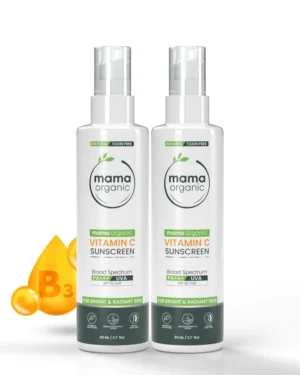Introduction
When it comes to sun protection, sunscreen is your best friend. It shields your skin from the harmful effects of the sun’s ultraviolet (UV) rays, preventing sunburn, premature aging, and even skin cancer. However, not all sunscreens are created equal. With a plethora of options on the market, finding the best sunscreen for your needs can be a daunting task. In this comprehensive guide, we’ll explore the world of sunscreens, uncover the key factors to consider, and provide recommendations for the best sunscreens available.
Understanding Sunscreen Basics
What is Sunscreen?
Sunscreen, also known as sunblock or sun cream, is a topical product that helps protect your skin from the sun’s UV radiation. It forms a barrier on your skin that absorbs, scatters or reflects the harmful UV rays, reducing their ability to penetrate the skin and cause damage.
How do UV Rays Affect Your Skin?
Understanding the different types of UV rays is crucial in selecting the right sunscreen:
UVA Rays
- UVA rays are responsible for premature aging, causing wrinkles and fine lines.
- They penetrate the skin more deeply than UVB rays, affecting the skin’s elasticity and suppleness.
- UVA rays can lead to long-term damage and increase the risk of skin cancer.
UVB Rays
- UVB rays primarily cause sunburn by damaging the outer layer of the skin.
- They play a significant role in the development of skin cancer.
- UVB rays are strongest during the summer months and at higher altitudes.
Understanding SPF
What is SPF?
Sun Protection Factor (SPF) is a numerical rating that indicates a sunscreen’s ability to protect your skin from UVB rays. The higher the SPF, the greater the protection.
SPF Levels Explained
- SPF 15: Provides minimal protection and is suitable for everyday activities with limited sun exposure.
- SPF 30-50: Offers moderate protection and is ideal for most outdoor activities.
- SPF 50+: Provides high protection and is recommended for extended sun exposure, especially for fair skin.
Choosing the Right Sunscreen
Factors to Consider When Choosing Sunscreen
Selecting the best sunscreen for your skin involves considering various factors:
Skin Type
Oily Skin
- Look for oil-free or non-comedogenic (won’t clog pores) formulas.
- Consider a gel-based or mattifying sunscreen to reduce shine.
Dry Skin
- Opt for sunscreen with added moisturizers or hydrating ingredients like hyaluronic acid.
- Cream-based sunscreens are often a good choice for dry skin.
Sensitive Skin
- Choose a sunscreen labeled as hypoallergenic and fragrance-free.
- Mineral-based sunscreens with zinc oxide or titanium dioxide are less likely to irritate sensitive skin.
Broad-Spectrum Protection
Ensure the sunscreen offers broad-spectrum protection, meaning it shields your skin from both UVA and UVB rays.
Water Resistance
If you plan to swim or sweat, opt for a water-resistant sunscreen that won’t easily wash off.
SPF Level
Select the appropriate SPF level based on your planned activities and your skin’s sensitivity to the sun.
Application
Lotion
- Traditional sunscreen lotions are easy to apply and spread.
- They are suitable for most skin types.
Spray
- Spray sunscreens are convenient for quick application but ensure even coverage.
- Be cautious not to inhale the spray.
Stick
- Sunscreen sticks are mess-free and ideal for targeted areas like the face.
- They are portable and easy to carry.
Active Ingredients
Chemical Sunscreens
- Chemical sunscreens contain active ingredients that absorb UV rays.
- Common chemicals include avobenzone, octisalate, and octocrylene.
- Some individuals may be sensitive to certain chemical ingredients.
Mineral Sunscreens
- Mineral sunscreens use zinc oxide or titanium dioxide to physically block UV rays.
- They are less likely to cause skin irritation and are suitable for sensitive skin.
Skin Conditions and Concerns
Consider any specific skin conditions or concerns, such as acne-prone skin, rosacea, or melasma, when choosing sunscreen. Some sunscreens are specially formulated to address these issues.
Top Sunscreens for Different Needs
Best Sunscreens for Various Situations
Now that we’ve covered the key factors to consider when choosing sunscreen, let’s explore some top sunscreen recommendations for different scenarios:
Best Everyday Sunscreen
EltaMD UV Clear Broad-Spectrum SPF 46
- Suitable for all skin types, including sensitive and acne-prone skin.
- Contains niacinamide for additional skin benefits.
- Offers broad-spectrum protection and is lightweight for daily use.
Best Sports and Water-Resistant Sunscreen
Coppertone Sport Sunscreen Lotion SPF 50
- Designed for active individuals.
- Offers high SPF and water resistance.
- Non-greasy and durable during outdoor activities.
Best Sunscreen for Sensitive Skin
CeraVe Hydrating Mineral Sunscreen SPF 30
- Fragrance-free and non-comedogenic.
- Contains ceramides for added skin hydration and protection.
- Ideal for those with sensitive or dry skin.
Best Anti-Aging Sunscreen
La Roche-Posay Anthelios Melt-in Milk Sunscreen SPF 100
- Provides very high SPF for maximum sun protection.
- Lightweight and suitable for daily use.
- Addresses signs of aging while protecting the skin.
Best Sunscreen for Children
Neutrogena Pure & Free Baby Sunscreen SPF 50
- Pediatrician-recommended sunscreen for children.
- Gentle, hypoallergenic formula.
- Provides broad-spectrum protection for delicate skin.
Tips for Proper Sunscreen Application
Getting the Most Out of Your Sunscreen
Applying sunscreen correctly is essential for effective protection. Here are some tips to ensure you get the most out of your sunscreen:
Apply Generously
Don’t skimp on sunscreen. Use at least one ounce (about a shot glass full) to cover your entire body.
Reapply Regularly
Remember to reapply sunscreen every:
- Two hours, especially if swimming or sweating.
- After towel-drying.
- Following intense physical activity.
Don’t Forget These Often Missed Areas
Ears and Neck
- These areas are commonly overlooked but are susceptible to sun damage.
Scalp
- If you have thin or no hair, protect your scalp by applying sunscreen or wearing a hat.
Lips
- Use a lip balm or lipstick with SPF to protect your lips from UV damage.
Use Sunscreen Year-Round
UV rays can harm your skin even on cloudy or overcast days. Make sunscreen part of your daily routine.
Conclusion
Selecting the best sunscreen for your needs is essential for maintaining healthy skin and preventing sun damage. Consider factors such as your skin type, planned activities, and SPF level when making your choice. Whether you’re seeking everyday protection, water resistance, or specific skin benefits, there’s a sunscreen out there that suits your needs. Remember to apply sunscreen generously and reapply regularly to keep your skin safe from the sun’s harmful rays. With the right sunscreen, you can enjoy the great outdoors while keeping your skin healthy and radiant.





